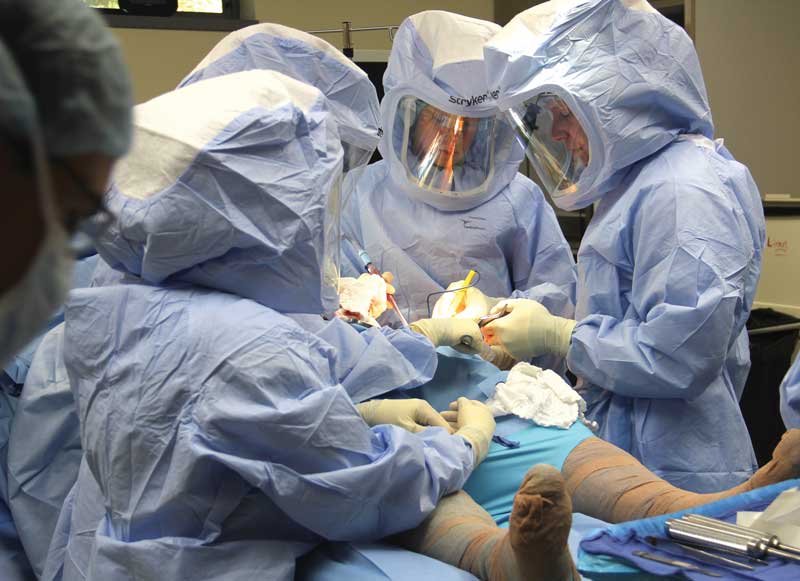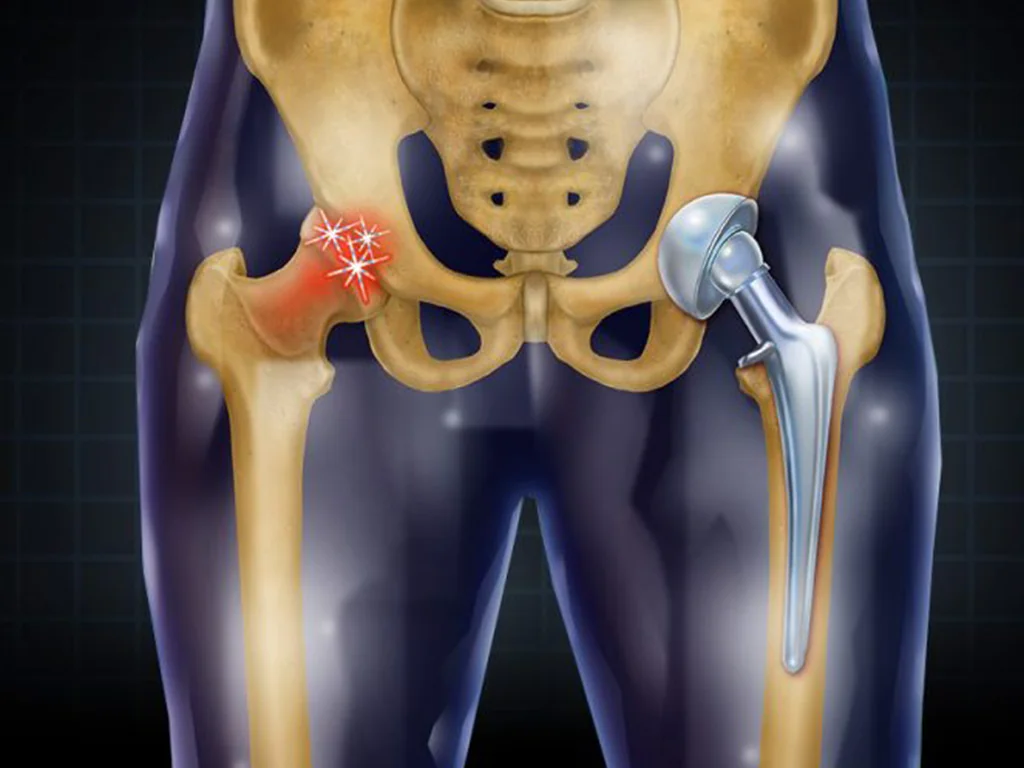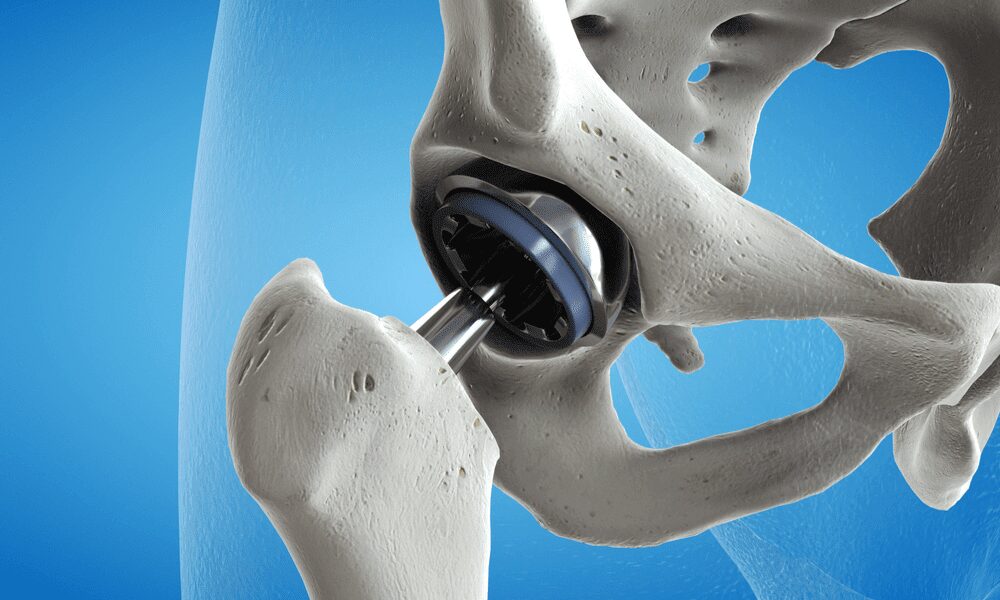
Risks and Complications of Hip Replacement Surgery
Discover the risks and benefits of hip replacement surgery, including potential complications and how opting for surgery abroad might lower these risks.
Hip replacement surgery is a commonly performed procedure that is safe for the majority of patients. However, like any operation, it does carry some risks. Most people who undergo hip surgery do not have any complications, and those that do are usually mild.
These risks and complications are more common among older people and those with preexisting medical conditions. In addition, there are also risks associated with general anaesthesia.
This article will examine the main risks and complications associated with hip surgery and explore how opting for hip replacement surgery abroad can reduce your risks.

How Common are Hip Surgery Complications?
Hip replacements, or hip arthroplasty, is an end-stage treatment for hip arthritis. After other, more conservative, treatment options have failed, patients are referred for a total hip replacement. This operation is considered safe and can reduce pain and increase a patient’s quality of life.
According to the latest research, severe complications are uncommon. The statistics indicate that:
- Only 1-3% of people will dislocate their new hips. A hip dislocation is a one-time event for more than 40% of these patients.
- Infection occurs in 1-2% of hip replacement patients, particularly individuals who are overweight or have a preexisting condition.
- Damaging to surrounding structures is exceedingly uncommon: arteries and veins (0.4%) and nerves (0.5%).
Potential Risks and Complications of Hip Replacement Surgery
Hip Dislocation
Unlike other less stable joints, the nature of the hip ball and socket joint means that dislocation is rare. Nonetheless, dislocations can occur in some patients, though they can usually be returned to the correct position without surgery.
Patients are at a higher risk of dislocation when they:
- Are of female gender.
- Are of advanced age.
- Have undergone previous hip surgeries, especially prior hip replacements.
- Possess weakened muscles around the hip area.
- Underwent hip replacement surgery due to a femoral neck fracture.
- Suffer from poor hip stability caused by conditions such as osteonecrosis, inflammatory arthritis (like rheumatoid arthritis), or other preexisting medical issues.
In the immediate postoperative period, patients are at increased risk of dislocation due to loose ligaments and inflamed structures. As such, surgeons and physical therapists (PTs) may advise avoiding certain movements and exercises, e.g., not crossing their legs or sitting in low seats.

Blood Clots
Blood clots in the lower limbs occur following periods of prolonged immobility. The blood pools in the tissue and begins to coagulate. In the legs, this is called deep vein thrombosis (DVT). If a fragment of the leg clot breaks off, it can travel to the lungs, causing a pulmonary embolism (PE).
If you notice any of the following symptoms in a specific area of your leg, it may be indicative of a Deep Vein Thrombosis:
- Redness
- Swelling
- Pain
- Warmth upon touching
Additionally, if you experience these symptoms, they could imply that a clot has moved to the lungs:
- Difficulty breathing
- Dizziness or a sensation of faintness
- A rapid heartbeat
- A mild fever
- Coughing, which may occasionally produce blood.
Surgeons and other staff are acutely aware of the risk of blood clots. Preventative measures occur both before, during, and after surgery. Surgeons and PTs will encourage you to move and perform simple exercises as soon as possible to encourage blood flow. Compression stockings are worn to prevent the blood from pooling. And blood-thinning medication is commonly prescribed, including warfarin (Coumadin), heparin, enoxaparin (Lovenox), fondaparinux (Arixtra), or aspirin.
Infection
Infection is a rare but extremely severe postoperative complication. To reduce the infection risk, operating theatres are sterile, and surgeons and their teams wear sterile clothing and thoroughly clean their hands prior to operating.
Still, in some cases, infections can occur. Often, this is because an individual is at greater risk of infection, including:
- People with diabetes
- HIV
- People taking immunosuppressant medication
- Sickle cell disease
- Overweight or obese individuals
- Anaemia
Depending on your potential risk, your doctor or surgeon may prescribe antibiotics prophylactically if you are in a high-risk group. If an infection does occur, it can risk the viability of the hip replacement.

Altered Leg Length
Orthopaedic surgeons carefully plan the operation to ensure the affected leg remains the correct length. However, the leg can sometimes be made slightly shorter or longer to optimise joint stability, mobility, and pain relief.
If altered leg length continues to be a problem, special shoe inserts are available. However, perceived differences in leg length aren’t always accurate. Patients get used to walking on the non-arthritic or less painful hip, creating an imbalance that will take longer to go away.
Joint Looseness
Joint loosening occurs when the shaft of the implant becomes loose in the hollow of the thigh bone (femur). It’s very rare for this to occur immediately following surgery. However, it does occur in around 5% of cases within 10 to 15 years after the original operation.
Another operation is often required to rectify this issue if it does occur.
Complications Related to Anaesthesia
The type of anaesthesia used, either local or general, depends on the surgeon’s preference. Local anaesthesia is generally safer, though rare allergies to the medication can occur. General anaesthesia, however, may lead to side effects such as:
- Body aches and pains
- General discomfort
- Feelings of dizziness
- Drowsiness or sleepiness
- Shivering or trembling
- A sore throat
- Nausea and vomiting

Minimise Complications with Hip Replacement Surgery Abroad
Concerned about potential complications? Despite their rarity, it’s important to take steps to prevent these complications from occurring. But what if you could do so and also avoid the high hip surgery price in Ireland?
Kardiolita Hospital is renowned for its excellent care, affordable prices, and low complication rate. Indeed, Lithuania has the second-lowest complication rate worldwide following orthopaedic surgery. We achieve this through our high-level training, commitment to hygiene, and postoperative care.
Alongside the reduced risks, patients also pay a tenth of the hip surgery price in Ireland. Find out about hip replacement surgery abroad. Send us an inquiry to start organising your operation.